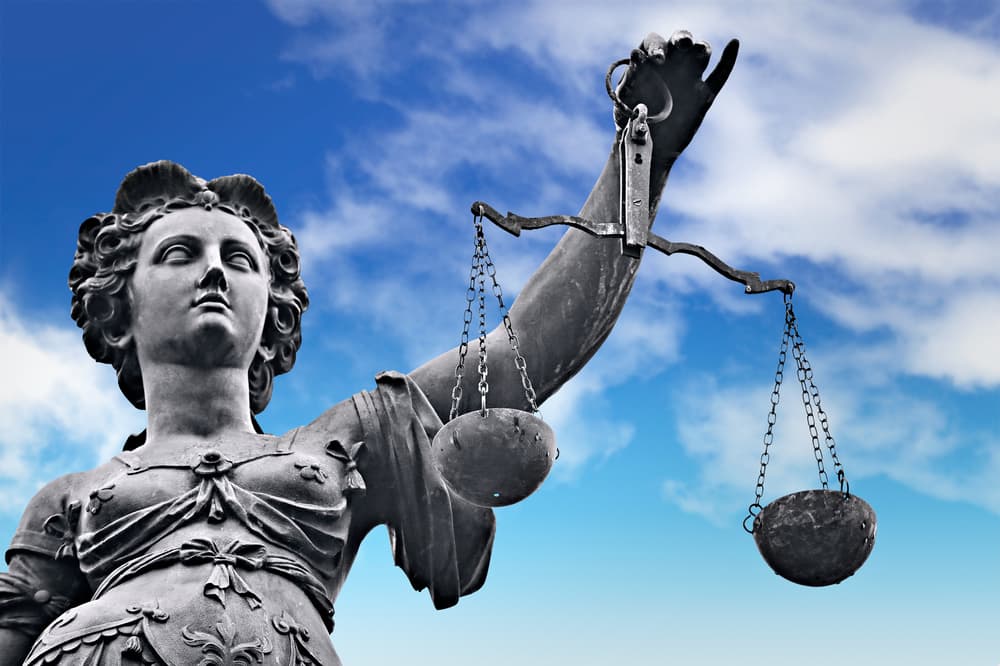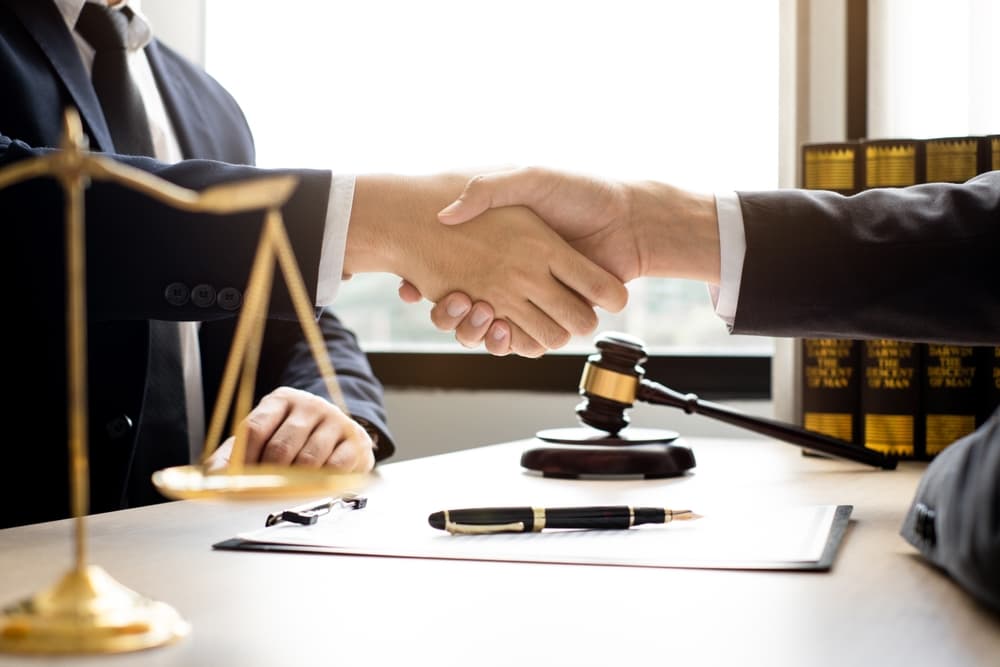When facing criminal charges, the attorney you need isn’t the one who helped with your divorce or real estate transactions. Your aunt’s car accident lawyer won’t cut it either. Those lawyers deal with civil cases, which are different from criminal cases.
You need a legal advocate who knows the ins and outs of criminal law and fits your case like a glove. Even if an attorney practices both civil and criminal law, you’ll want to ensure they’re the right match for your unique situation.
Let’s take a look at the differences between these two areas of law and some key considerations for finding the right criminal defense lawyer for you.
Civil versus Criminal Law

Civil law is where you turn when you have problems with a single individual, a business, or another entity.
Typical civil court cases include:
- Divorces
- Landlord/tenant issues
- Personal injury accidents
- Child custody
- Property disputes
- Breach of contract
Civil cases pertain to an injury or damages to an individual.
Criminal law goes into effect when someone allegedly breaks a state or federal law. Criminal law involves actions considered harmful to society or the state, even if the act only harms one person.
Typical criminal cases include:
Criminal cases pertain to crimes against the government or society.
Criminal law and civil law also differ in how cases start, who decides them, the penalties involved, the proof needed, and the legal protections provided to defendants.
The government brings charges in criminal law, and judges or juries decide cases. Penalties can include jail time or fines, and require proof beyond a reasonable doubt.
Individuals or entities initiate cases in civil law, and decisions can involve judges, juries, arbitrators, or mediators. Penalties often involve compensation or injunctions, and usually require a preponderance of evidence.
Defendants still have rights to a fair trial and due process, but they’re typically fewer than in criminal cases.
What Does a Criminal Lawyer Do?
Criminal lawyers, also known as criminal defense attorneys, defend individuals or entities accused of criminal offenses. They protect the rights of their clients and ensure they receive a fair trial.
Here’s a closer look at what criminal lawyers do:
- Legal Representation: The core function of a criminal lawyer is to provide legal representation to their clients. They serve as advocates throughout the legal process, from initial investigation to trial and, if necessary, appeal. Criminal lawyers offer their clients advice, guidance, and support at every stage of the case.
- Case Evaluation: Criminal lawyers thoroughly assess the details of each case to understand the charges against their clients, the evidence presented by the prosecution, and any potential defenses. They analyze the strengths and weaknesses of the case to develop effective legal strategies tailored to their client’s circumstances.
- Investigation: Criminal lawyers conduct independent investigations to gather evidence, interview witnesses, and uncover mitigating factors that could support their client’s defense. They may collaborate with private investigators, forensic experts, and other professionals to strengthen their case and challenge the prosecution’s arguments.
- Negotiation: Criminal lawyers negotiate with prosecutors to seek favorable outcomes for their clients. This may involve plea bargaining, where the defendant agrees to plead guilty to lesser charges in exchange for reduced penalties. Criminal lawyers advocate for their clients’ interests during negotiations to achieve the best possible resolution.
- Courtroom Representation: Criminal lawyers represent their clients in court proceedings, including arraignments, bail hearings, pretrial motions, trials, and sentencing hearings. They present arguments, cross-examine witnesses, and challenge evidence submitted by the prosecution. Criminal lawyers strive to protect their clients’ rights and secure acquittals or minimize penalties.
- Appellate Advocacy: If a verdict is unfavorable, criminal lawyers may file appeals on behalf of their clients to challenge legal errors or procedural irregularities during the trial. They present arguments to higher courts to overturn convictions or secure new trials for their clients.
- Client Counseling: Throughout the legal process, criminal lawyers provide emotional support and guidance to their clients, helping them navigate the complexities of the criminal justice system. They inform their clients about case developments, potential outcomes, and legal options, empowering them to make informed decisions.
Criminal lawyers are dedicated legal professionals who vigorously defend the rights and interests of their clients, striving to achieve the best possible outcomes in challenging legal situations.
What Should You Look for in a Criminal Defense Lawyer
When hiring a criminal defense attorney, it’s essential to consider several factors to ensure you find suitable legal representation for your case.
Here are some key things to look for:
- Experience: Look for an attorney with experience handling cases like yours. A seasoned criminal defense attorney will thoroughly understand the legal system and the strategies necessary to defend you effectively.
- Track Record: Research the attorney’s track record of success in defending clients. Look for reviews, testimonials, or case results demonstrating their ability to achieve favorable client outcomes.
- Communication: Effective communication is essential in any legal case. Ensure that the attorney is responsive to your inquiries, listens to your concerns, and explains legal concepts and strategies clearly and understandably.
- Accessibility: Consider the attorney’s availability and accessibility. You’ll want someone who can devote sufficient time and attention to your case and be readily available to address any urgent matters.
- Reputation: Research the attorney’s reputation within the legal community and among former clients. A reputable attorney will have a positive reputation for professionalism, integrity, and ethical conduct.
- Resources: Evaluate the resources available to the attorney, such as support staff, investigators, and experts. Adequate resources can strengthen your defense and improve your chances of a successful outcome.
- Trial Experience: If your case goes to trial, you’ll want an attorney with significant trial experience and a track record of success in the courtroom. Trial experience is invaluable in navigating complex legal proceedings and effectively presenting your defense.
- Strategy: Discuss the attorney’s strategy for handling your case. A skilled criminal defense attorney will develop a tailored defense strategy based on your case’s circumstances and legal goals.
- Comfort Level: Trust your instincts and choose an attorney you feel comfortable and confident with. Building a strong attorney-client relationship is essential for effective collaboration and communication throughout the legal process.
Considering these factors and conducting thorough research will help you select a competent and trustworthy criminal defense attorney to represent you and protect your rights effectively in your criminal case.
How to Prepare for a Meeting With a Criminal Defense Attorney

Prepare for a meeting with your criminal defense attorney to make the most of your time together and provide them with the information they need to represent you effectively.
Here are some steps to help you prepare:
- Gather Documents: Collect any relevant documents related to your case, such as police reports, court documents, witness statements, or correspondence from law enforcement.
These documents will give your attorney important information about the charges against you and the evidence the prosecution plans to present. - Write Down Details: Take some time to write down your recollection of the events leading up to your arrest and any other pertinent details about your case. Include information about any witnesses, conversations with law enforcement, or other relevant facts that may help your attorney build your defense.
- List Questions and Concerns: List your questions and concerns about your case, the legal process, and your attorney’s role. This will ensure that you address all of your essential issues during your meeting and help you better understand what to expect moving forward.
- Review Legal Documents: Review any legal documents, like a search warrant or a citation, carefully before your meeting. Note any questions or discrepancies you have so that you can discuss them with your attorney.
- Be Honest and Open: During your meeting, be honest and open with your attorney, including any past criminal history or other potentially damaging information. Your attorney must understand your situation completely to provide you with the best possible representation.
- Discuss Legal Fees: If you haven’t already done so, discuss legal fees and payment arrangements with your attorney during your meeting. Ensure you understand the billing structure and what services are covered so there are no surprises later.
- Take Notes: Bring a notebook and pen to your meeting to take notes on important information and instructions provided by your attorney. This will help you remember key details and follow any advice or recommendations they give you.
Preparing for your meeting with your criminal defense attorney will better equip you better equipped for a productive and informative discussion about your case and legal options.
Understanding Your Rights in a Criminal Case
When facing criminal charges, you must clearly understand your rights to ensure fair treatment and protect yourself throughout the legal process. The United States Constitution and other laws guarantee certain fundamental rights to individuals accused of crimes.
Here’s a comprehensive overview of your fundamental rights in a criminal case:
- Right to Remain Silent: One of the most crucial rights you have when interacting with law enforcement is the right to remain silent. This means you can refuse to answer questions posed by police officers or other authorities without facing adverse consequences.
Exercise this right to avoid inadvertently incriminating yourself or providing information that could be used against you in court. - Right to Legal Representation: Legal representation is a right. If you cannot afford an attorney, one will be appointed to represent you at no cost. Your attorney plays a crucial role in protecting your rights, providing legal advice, and advocating on your behalf throughout the legal process.
- Right to a Fair Trial: The right to a fair trial is a cornerstone of the criminal justice system. This includes the right to be tried by an impartial jury of your peers, the right to confront witnesses against you, and the right to present evidence and witnesses in your defense.
- Presumption of Innocence: You are presumed innocent until proven guilty beyond a reasonable doubt. This means that the burden of proof lies with the prosecution to demonstrate your guilt, and you are not required to prove your innocence.
- Protection Against Self-Incrimination: The Fifth Amendment to the United States Constitution protects individuals from being compelled to testify against themselves in a criminal case. This means you have the right to remain silent and cannot be forced to confess or provide self-incriminating statements. Exercise this right to avoid making statements that could be used against you in court.
- Protection Against Unreasonable Searches and Seizures: The Fourth Amendment protects individuals from unreasonable searches and seizures by law enforcement. This means that police officers must obtain a warrant based on probable cause before searching your person, property, or belongings in most cases.
The court may refuse to admit any evidence if law enforcement obtained it while violating your Fourth Amendment rights. - Right to Appeal: Those convicted of a crime can appeal the verdict or sentence to a higher court. The appellate process allows you to challenge legal errors or procedural irregularities that occurred during the trial and seek a reversal of the conviction or a new trial.

You need a lawyer who understands your rights in a criminal case to protect you and ensure fair treatment throughout the legal process.
Exercise these rights effectively, work closely with your attorney, and assert your rights at every stage of the proceedings to safeguard your interests and achieve the best possible outcome for your case.


